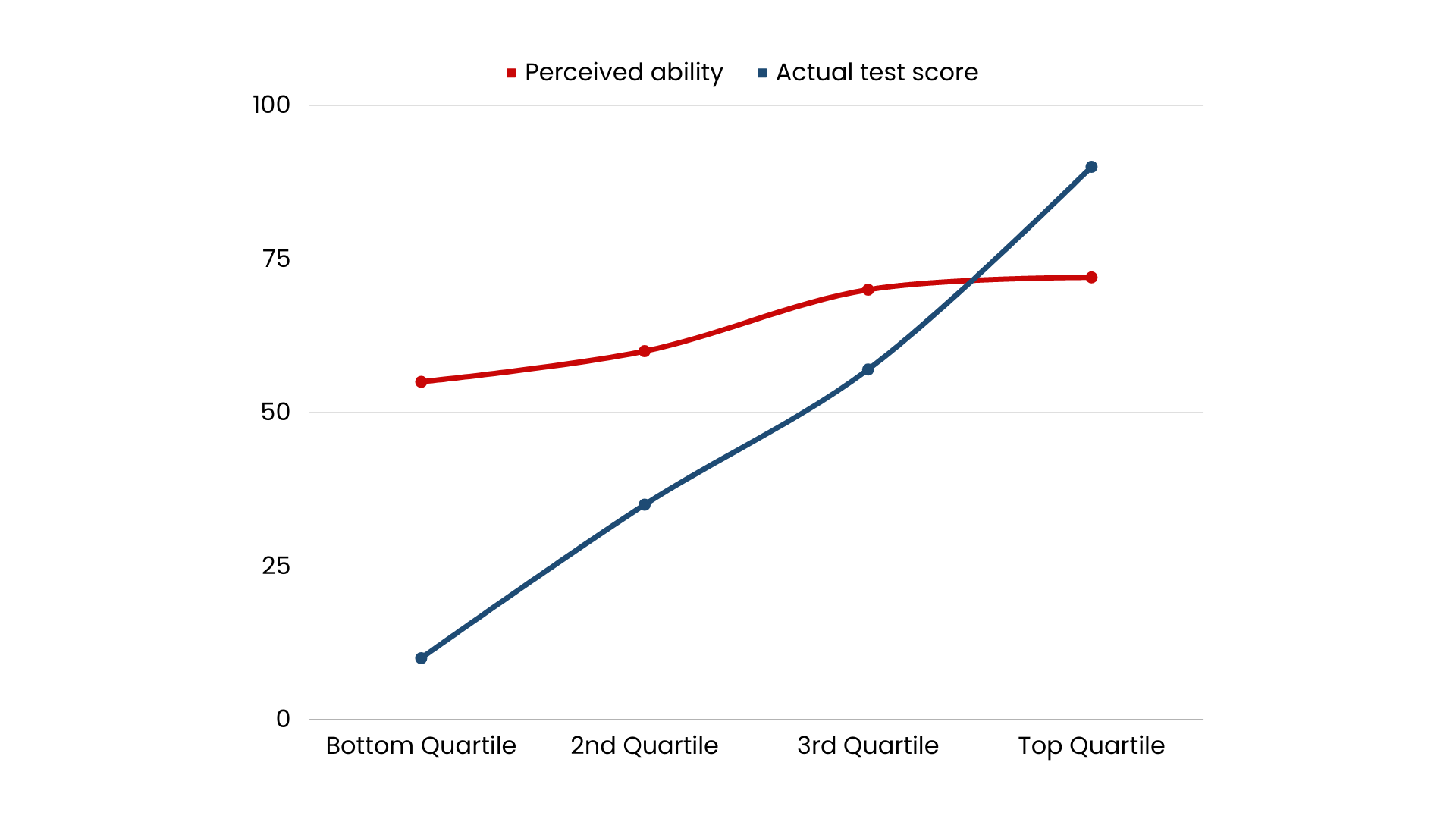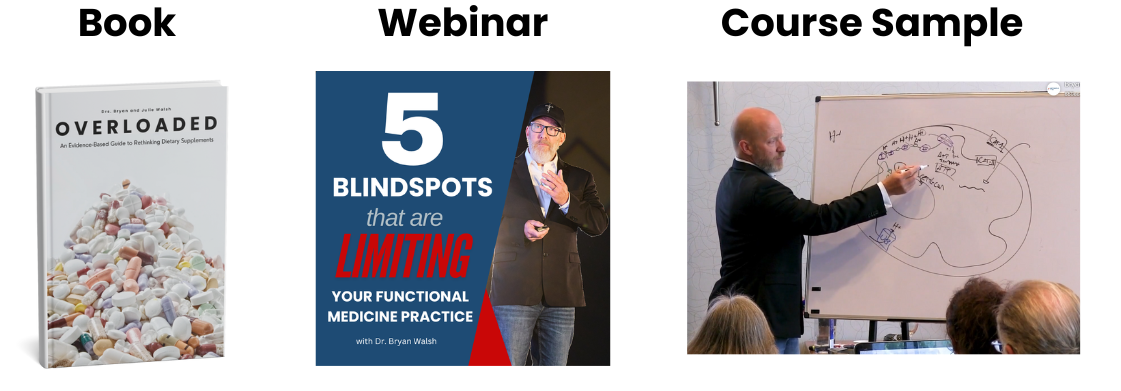Do You Know What You Don't Know?
Have you ever known someone who watched a documentary – say on climate change – and then all of a sudden became an expert in climate change?
Or maybe someone who went to one seminar and then started diagnosing everyone with what they just learned?
Perhaps you saw someone who read a few articles on a recent pandemic and then qualified themselves to dole out "expert" advice about supplements to save us all.
These are all examples that could qualify as the Dunning-Kruger effect. You may have heard about it, as it is a popular term that has been tossed around as of late.
The funny thing is, most people that talk about the Dunning-Kruger effect, suffer from the Dunning-Kruger Effect about the Dunning-Kruger Effect.
Or maybe someone who went to one seminar and then started diagnosing everyone with what they just learned?
Perhaps you saw someone who read a few articles on a recent pandemic and then qualified themselves to dole out "expert" advice about supplements to save us all.
These are all examples that could qualify as the Dunning-Kruger effect. You may have heard about it, as it is a popular term that has been tossed around as of late.
The funny thing is, most people that talk about the Dunning-Kruger effect, suffer from the Dunning-Kruger Effect about the Dunning-Kruger Effect.
In fact, if you do a Google image search on the Dunning-Kruger effect, those graphs you see, with catchy phrases like “Mt. Stupid”, have zero resemblance to the original research.
We want to fix that, as this concept has massive implications in the functional medicine industry and honestly, across the board.
Let's dive into the Dunning-Kruger effect, discuss the implications in the health care industry, and highlight what we can do to avoid this common mental malady.
We want to fix that, as this concept has massive implications in the functional medicine industry and honestly, across the board.
Let's dive into the Dunning-Kruger effect, discuss the implications in the health care industry, and highlight what we can do to avoid this common mental malady.
The Dunning-Kruger Effect
In a nutshell, the Dunning-Kruger effect suggests that underperformers tend to overestimate their abilities, while high-performers tend to underestimate theirs.
You know that phrase, “He knows just enough to be dangerous?” It's kind of like that. People that have a little knowledge on a subject tend to think they know a lot more about that subject, while people who actually know a lot, don’t think they do and believe other people do, too.
But it turns out the most important feature of the Dunning-Kruger effect may not be the over or underestimation of our abilities based on our competence. Rather, it seems it is the ignorance that comes with it – we’re too incompetent to recognize our incompetence. We don’t know enough to realize what we don’t know.
Put another way, the better you think you are at a thing, the less likely you’re actually good at it, and the less likely you are to be able to recognize it.
You know that phrase, “He knows just enough to be dangerous?” It's kind of like that. People that have a little knowledge on a subject tend to think they know a lot more about that subject, while people who actually know a lot, don’t think they do and believe other people do, too.
But it turns out the most important feature of the Dunning-Kruger effect may not be the over or underestimation of our abilities based on our competence. Rather, it seems it is the ignorance that comes with it – we’re too incompetent to recognize our incompetence. We don’t know enough to realize what we don’t know.
Put another way, the better you think you are at a thing, the less likely you’re actually good at it, and the less likely you are to be able to recognize it.
Back to the above example on Mr. Pandemic expert, who read an article or two and is now hosting an expert webinar. This person knows but a drop in the ocean of virology, immunology, epidemiology, pathology, and pharmacology. But because they aren’t aware of just how much there is to know about the subject, they can't recognize their knowledge gaps (or knowledge Grand Canyon).
Back in 1999, the team of Dunning and Kruger performed a study where they asked students who just took an exam how they thought they did on the exam. The researchers divided the results into quartiles and found that those that did the worst on the exam thought they did particularly well, while those that performed the best on the exam, weren’t quite as confident on their performance.
Here is what their seminal study found, which has been since repeated many times over:
Here is what their seminal study found, which has been since repeated many times over:

As you can see in the graph (the real graph, you'll find many incorrect ones on the internet), those that scored the lowest on the exam, grossly overestimated their performance, while those that scored well, underestimated their performance.
It turns out incentives, including financial ones, don’t seem to help improve this effect either.
So clearly, the answer is to become an expert, right?
Again this doesn’t have to do with being "dumb" or "living on Mt. Stupid" (like most internet articles proclaim), but rather one’s ignorance on how little they know about a subject.
It turns out incentives, including financial ones, don’t seem to help improve this effect either.
So clearly, the answer is to become an expert, right?
Not so fast. It turns out expertise has the pitfall of being so smart in a subject, one believes they know something about completely fictitious concepts in their area of expertise.
How does all of this relate to health care?
There’s a tendency in our industry to learn a little bit of new information (after attending a seminar or listening to a few podcasts) and thinking we are better than we actually are at this new technique, skill, lab test, etc.
Here are a few examples of the Dunning-Kruger in health care:
But in addition to being ignorant of our ignorance, we are also poor evaluators. How are we supposed to judge expertise in a subject when we lack the knowledge and expertise in that subject? In other words, how are we supposed to learn from an expert in a subject, when we totally lack the knowledge in a subject to know who is an expert?
It seems most of us overestimate our abilities on things (we can’t all be above-average drivers) and those that have reached legitimate expertise, generally underestimate their abilities, but struggle with believing they know about things that don't exist.
What can we do?
Admit you don’t know. It’s sometimes called “intellectual humility”, which issaid to be the difference between intellectual ignorance and intellectual servility. When you don’t know something, say “I don’t know”.
Admit you’re ignorant. Like Karl Popper said, “Our knowledge can only be finite, while our ignorance must necessarily be infinite.” Realize we’re all prone to ignorance and likely don’t know everything there is to know about a subject.
Admit you may be wrong. Could your views on a topic be wrong? Absolutely. If Voltaire was right and everything is an opinion, ours could be wrong. Heck, even facts change from time to time.
The Dunning-Kruger effect isn’t about "stupidity" or "idiocracy" and shouldn’t be used as a put-down, contrary to popular opinion on the internet. It demonstrates that we are ignorant of many things - how much we know, how much we don’t know, and how much there is to know on a subject. Perhaps the first step is to collectively drop the ego and cozy up to humility.
Important: Did you read to the end of this post? Let us know! There is a growing epidemic of short shortening attention spans and preferring shallow entertainment over knowledge. We'd love to hear from those who haven't been afflicted so we know we're not a dying breed 👊


